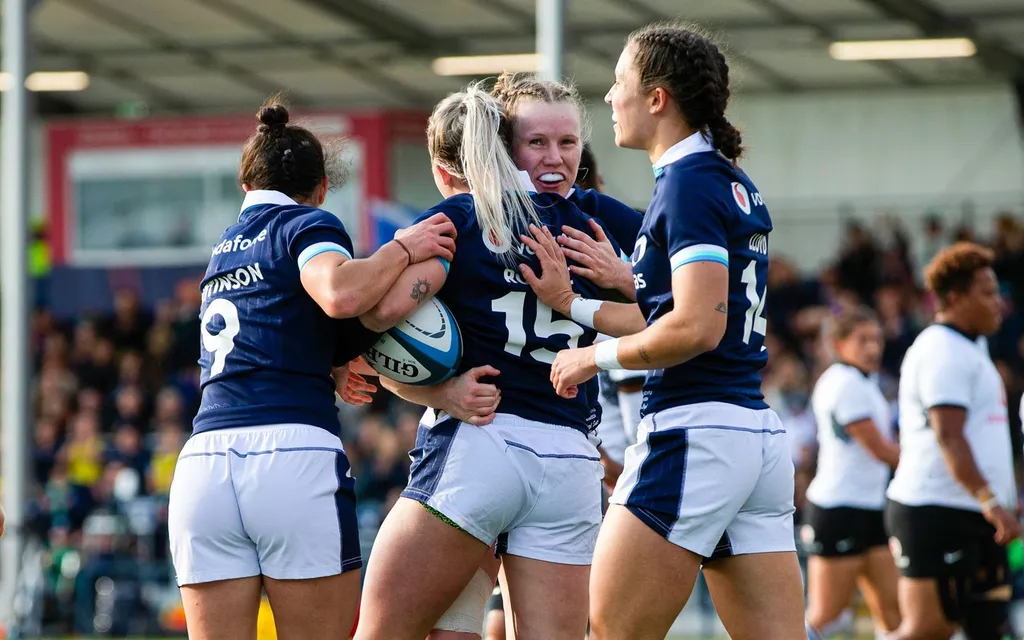Celebrity Fan Web – Scottish Rugby’s chief executive, Alex Williamson, has confirmed that contract uncertainties for the national women’s rugby team will be addressed before this summer’s Rugby World Cup. Currently, only 15 of the 38 training squad players hold year-long contracts, leaving many players on short-term deals without security beyond the tournament. Williamson assured that all players would know their contract status before the World Cup begins.
“Also Read: Real Madrid’s Mbappe Released from Hospital”
Ongoing Negotiations to Provide Short-Term Security
Williamson emphasized that the organization is actively negotiating to provide players with greater short-term contract security. These discussions aim to give the players clarity on their immediate futures, allowing them to focus on their World Cup preparations without contract distractions. Williamson described the talks as productive and close to reaching satisfactory outcomes for the players. He also stressed that the players’ well-being and peace of mind remain a top priority throughout the process. The aim is to ensure that all athletes feel supported and valued as they represent Scotland on the international stage. By securing these contracts, Scottish Rugby hopes to build trust and commitment within the squad, fostering a stronger, more unified team heading into the tournament.
Drive to Professionalize Women’s Rugby in Scotland
The contract negotiations coincide with a broader effort to professionalize women’s rugby within Scotland. Williamson highlighted the need to create a domestic professional environment that encourages players to remain in Scotland, rather than moving to English clubs for better opportunities. He explained that the goal is to build competitive pro or semi-pro teams in Edinburgh and Glasgow to strengthen the local rugby landscape. This strategy aims to boost the overall standard of the women’s game, attract more talent, and increase fan engagement. By investing in homegrown teams, Scottish Rugby hopes to establish a sustainable pathway for players’ development. This approach could also pave the way for Scotland to compete more effectively in international leagues and tournaments in the future.
Importance of Strengthening the Celtic Challenge League
To elevate standards and promote growth, Williamson pointed to the Celtic Challenge as a key component. He argued that improving this league is essential to starting conversations about a potential British and Irish league for women’s rugby. If the Celtic Challenge remains weak, Scottish Rugby will struggle to gain support for this vision. Strengthening domestic competition is critical for long-term professionalization.
Balancing Progress and Player Concerns
Williamson acknowledged that while players support the plan to professionalize rugby in Scotland, the current contract situation creates tough challenges for them personally. The transition may feel difficult for some, but it is necessary for future success. He expressed hope that more Scottish female players will receive contracts soon, recognizing the delicate balance between immediate difficulties and long-term benefits for the sport.
